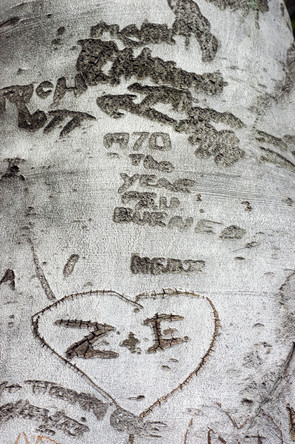Before President Trump arrives in Germany for this week’s G20 Summit, he first stops off in Poland, where he’s set to receive a warm welcome.
What’s happening here? Given Poland’s grim historical experiences under Russian imperialism, shouldn’t any sane Pole be more than a little uneasy about the new US President, thought by many to be much too close to Russia’s Vladimir Putin?
Maybe. But Europe is a complicated place at the moment.
The European Union, in fact, contains two Europes.
“Western Europe” is made up of countries that grew as plump, modern democracies under an American security umbrella and invented the EU.
Meanwhile, “former communist Europe” — sometimes called “Eastern Europe” — battled for decades to break from Soviet-imposed communism and find its own voice.
Many “Western Europeans” are comfortable with largely secular, post-modern, liberal-technocratic integration that dilutes national identity. Indeed, for some European federalists, diluting national identity is not a cost, nor even something to worry about: it is the whole point of the federalist policy.
By contrast, much of “post-communist Europe” likes the prosperity and opportunity that economic integration brings, but is far more cautious on anything affecting national identity.
The people of these countries suffered long and hard to keep their own identity under communism. It’s little wonder they baulk at abandoning it in favor of mushy multi-culturalism, just because Germany and other elites like it.
The migration issue brings this to a head. Poles and other central Europeans look aghast at the appalling terrorist attacks by Islamist Jihadists in Manchester, London, Paris, Nice, Brussels and Berlin. They conclude that they oppose whatever policies have created these disasters. If that means denying entry into their countries to any categories of migrants that might bring those ideas with them, so be it.
The logic goes: if such terrorist phenomena are a result of wider globalization, maybe we should have a bit less of that too?
The Polish government is currently dominated by Jaros?aw Kaczy?ski (whose twin brother Lech was Poland’s President when he died in the Smolensk air crash in 2010). Kaczy?ski is adept at playing with these ideas and framing his policies accordingly.
Plenty of poorer Polish voters living away from the more liberal-minded cities feel marginalized or worried by the economic and cultural results of unrelenting “integration”. They respond to blatantly patriotic pseudo-conservative slogans: Yes to Poland and everything Polish! Yes to lots more NATO! No to Brussels and Berlin! HELL NO to massed refugees from the Middle East!
In this complex political-psychological situation in Europe, both President Trump and President Putin offer in their very different ways rhetorical cover for defensive, populist instincts.
President Trump may be (to put it politely) quixotic and unpredictable. But he loves to talk in shamelessly sentimental terms about pride in one’s country. He likes deals. He likes coal and coal miners — Poland has coal mines threatened by EU climate policies. His crassly robust, no-nonsense approach to politics and life in general is as far from President Obama’s lofty languid liberal detachment as can be imagined.
President Putin by contrast knows that he has nothing positive to offer central and eastern Europeans who have long memories of Soviet oppression. He makes the best of a bad job by offering blandishments for Russia’s leadership in upholding conservative civilizational values: No decadence! No namby-pamby gay rights! No compromise with radical Islam!
This of course leads nowhere, but when attached to busy cunning meddling in Western social media it creates uncertainty and mistrust that gnaw away at the very idea of democracy.
In short, Europe finds itself, once again, pondering an uncertain future. Its social-democratic model of international integration represented by the European Union is struggling to hold firm against multiple challenges: mass migration from the Middle East and Africa; Brexit; deep financial stresses in the ill-conceived eurozone.
But above and beyond those acute practical problems, perhaps the very idea of bland liberal supra-nationalism as part of technological globalisation is running out of legitimacy.
Do Europe and its patchwork quilt of nations and languages have an identity worth preserving? If so, who now best defines it — and who offers the best long-term chance to preserve it?
Angela Merkel? Vladimir Putin? Donald Trump? Is that now the choice available?



